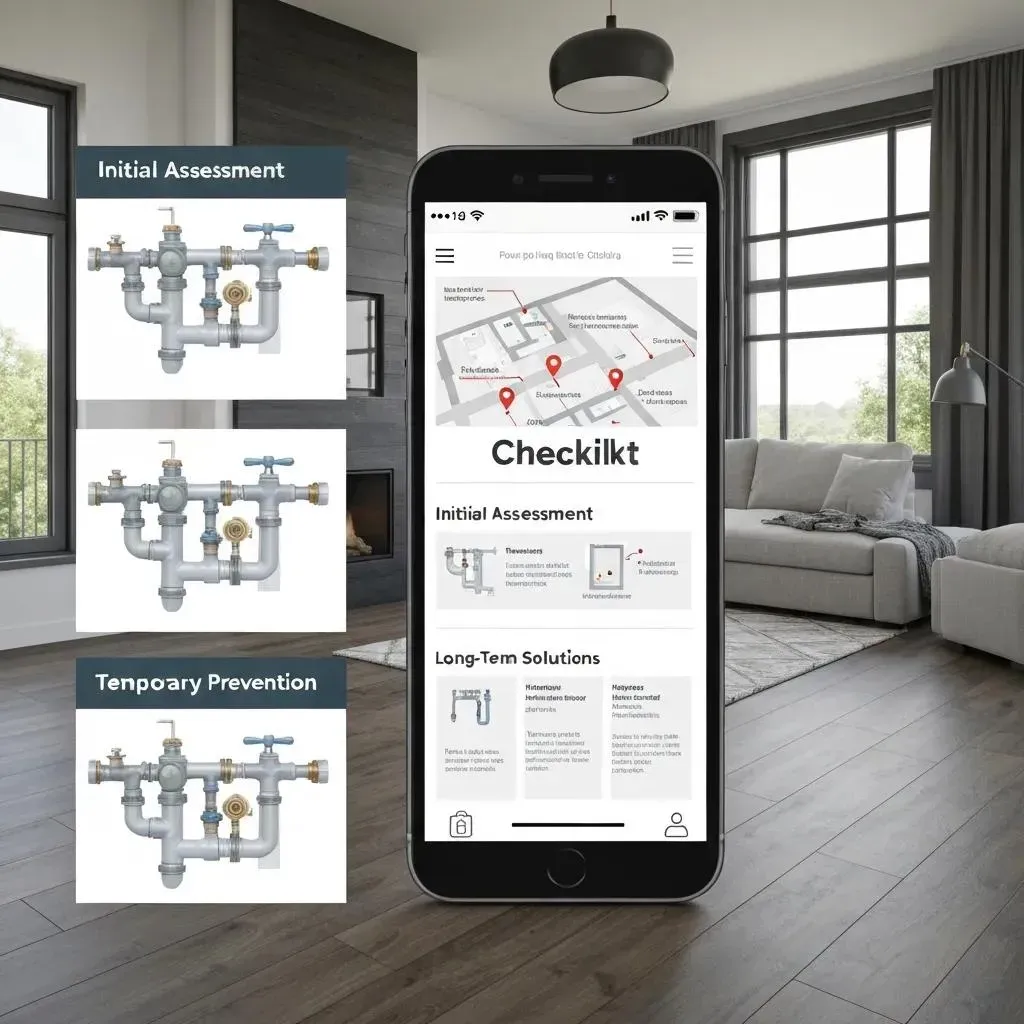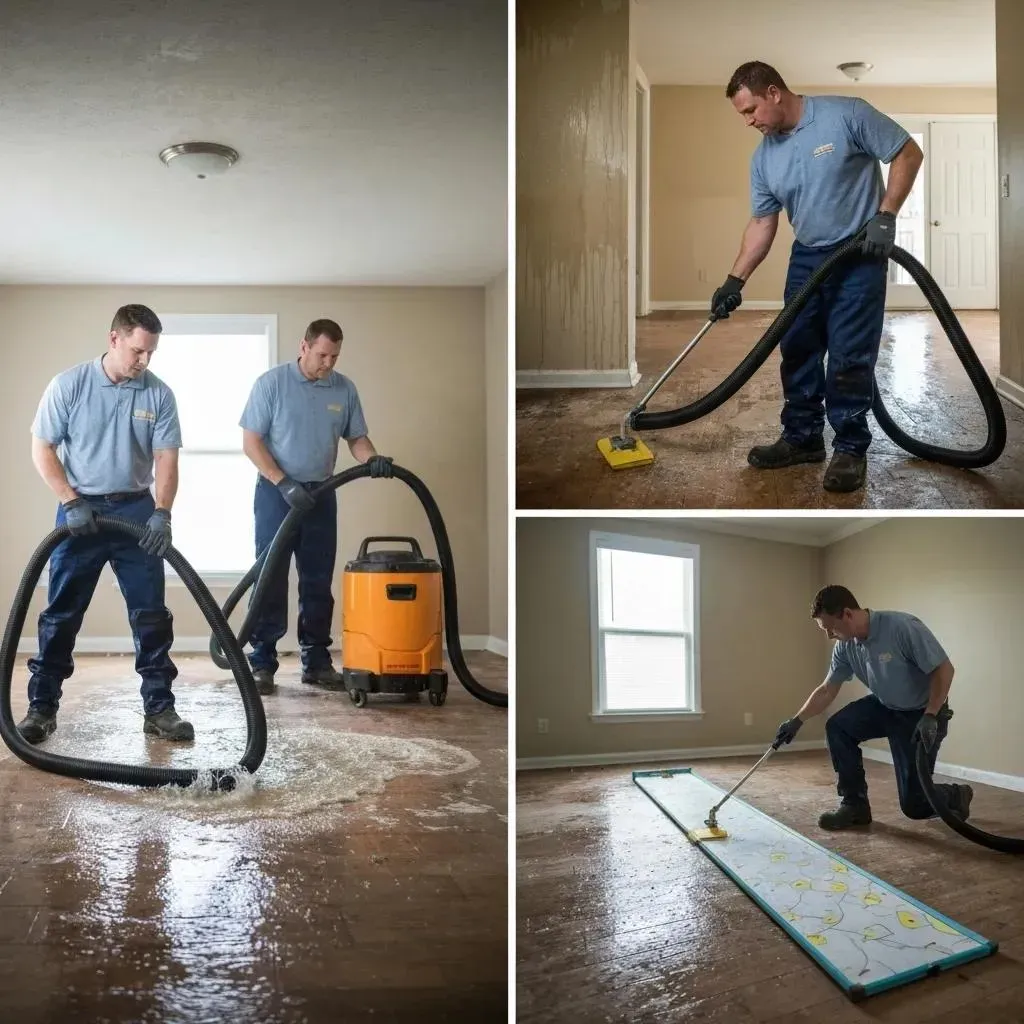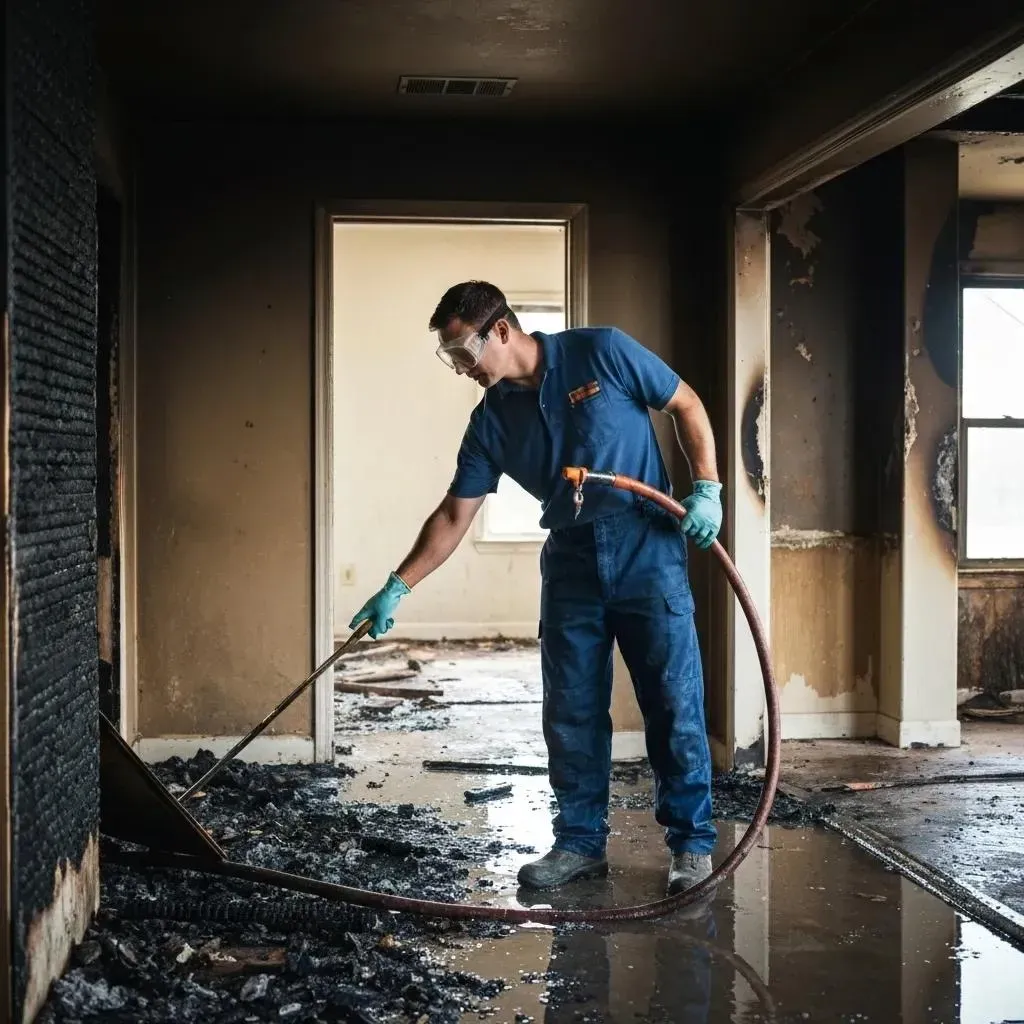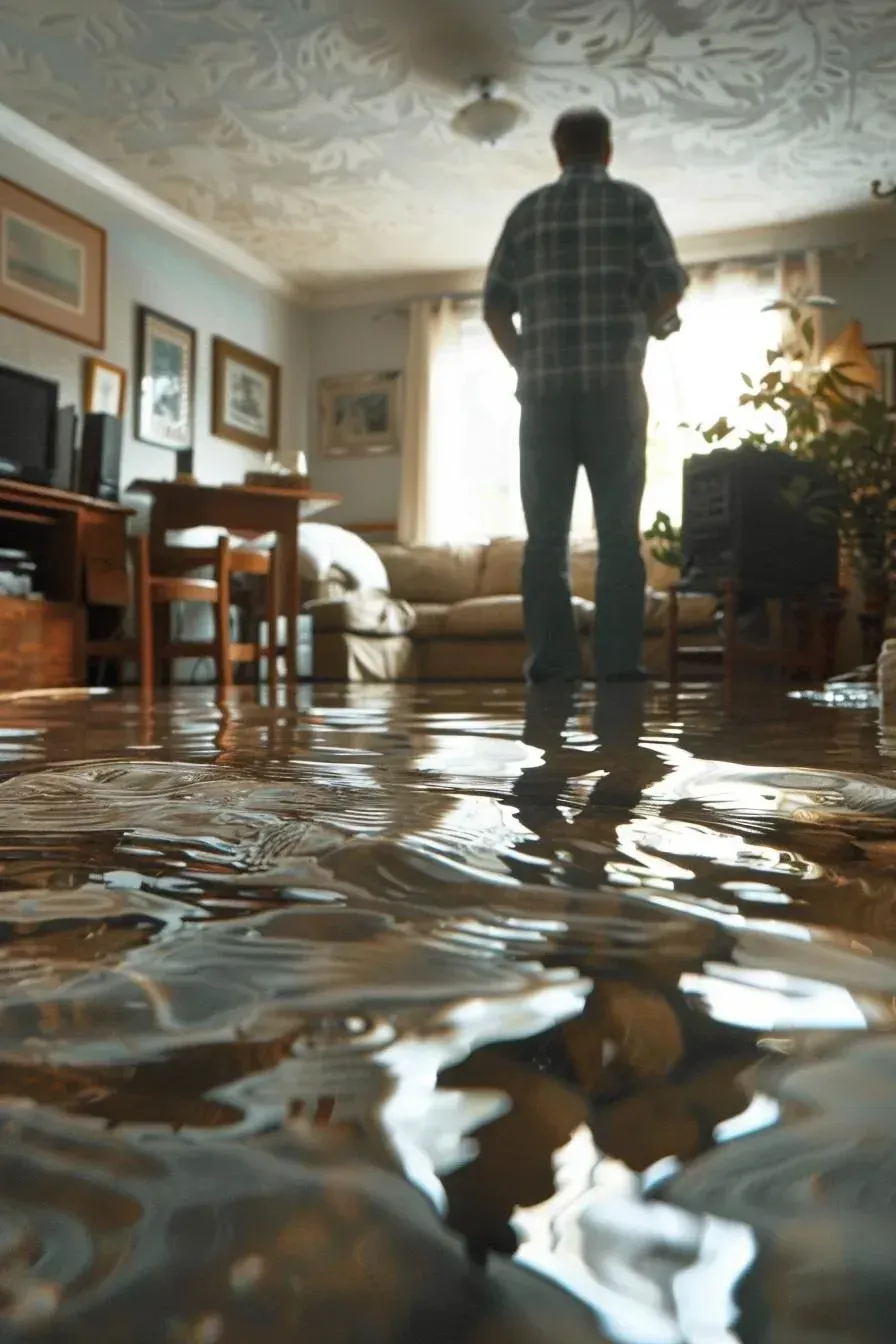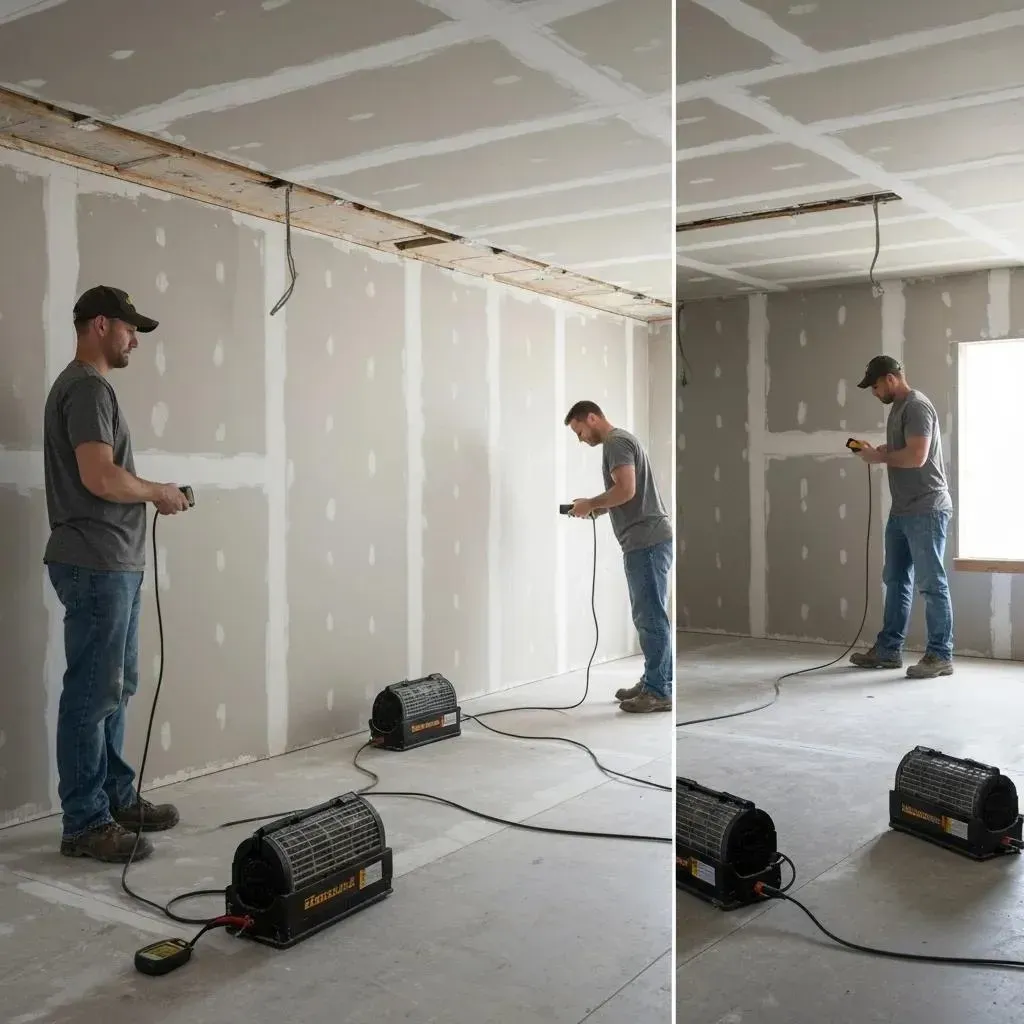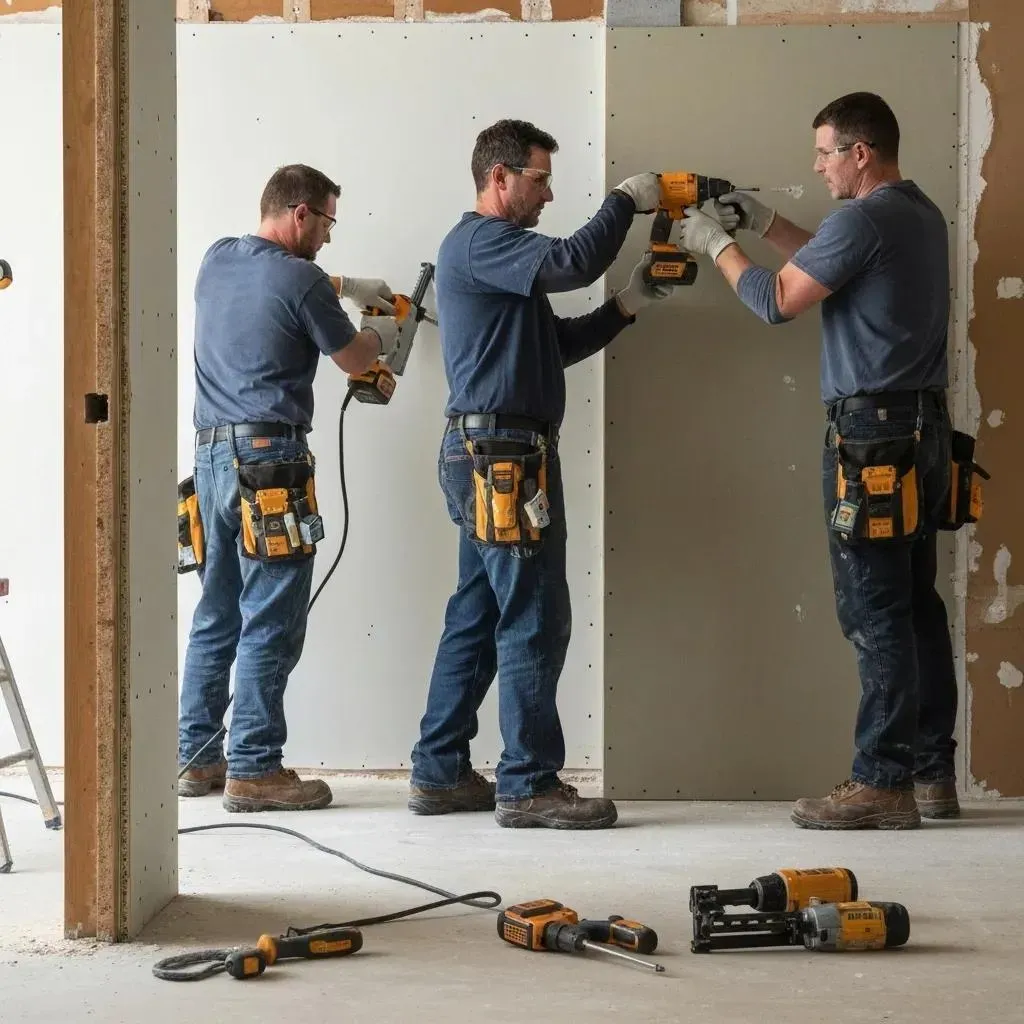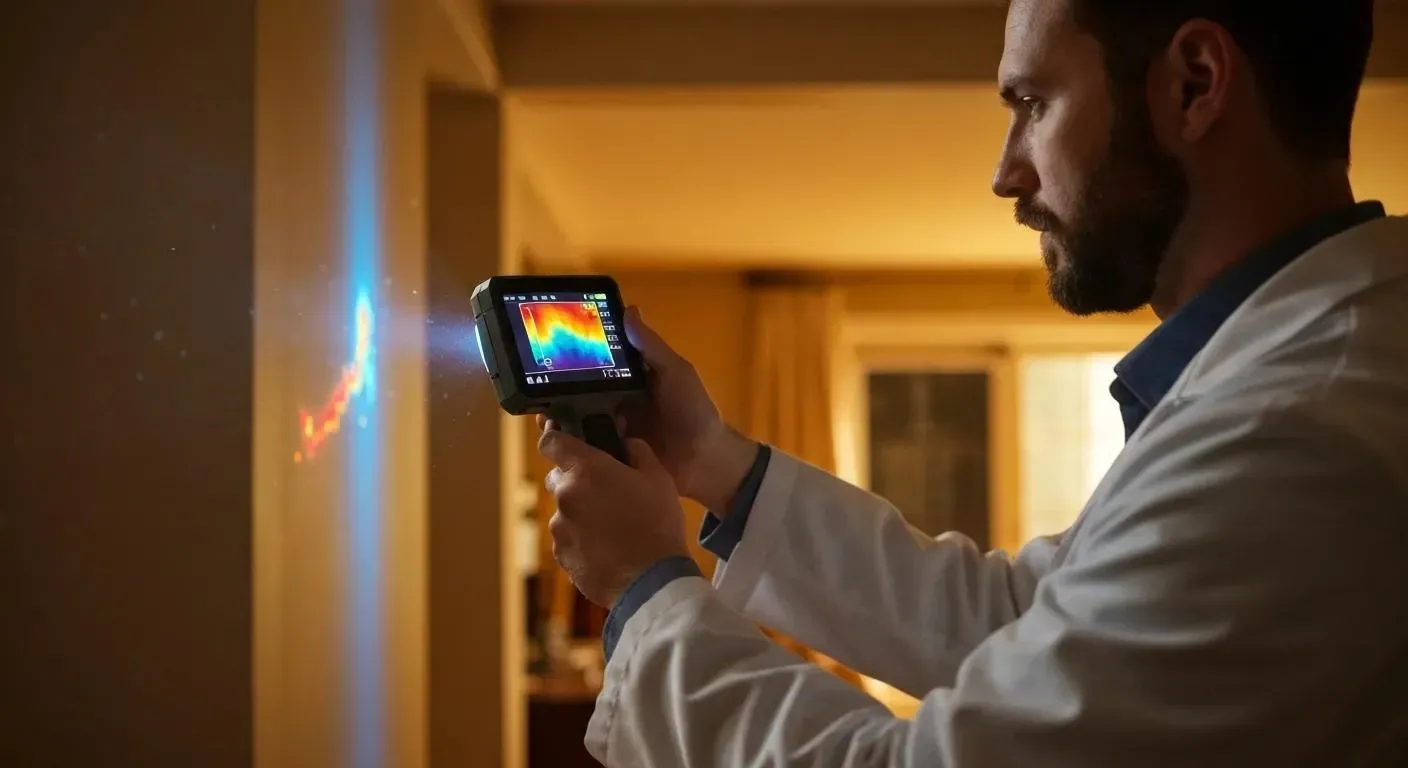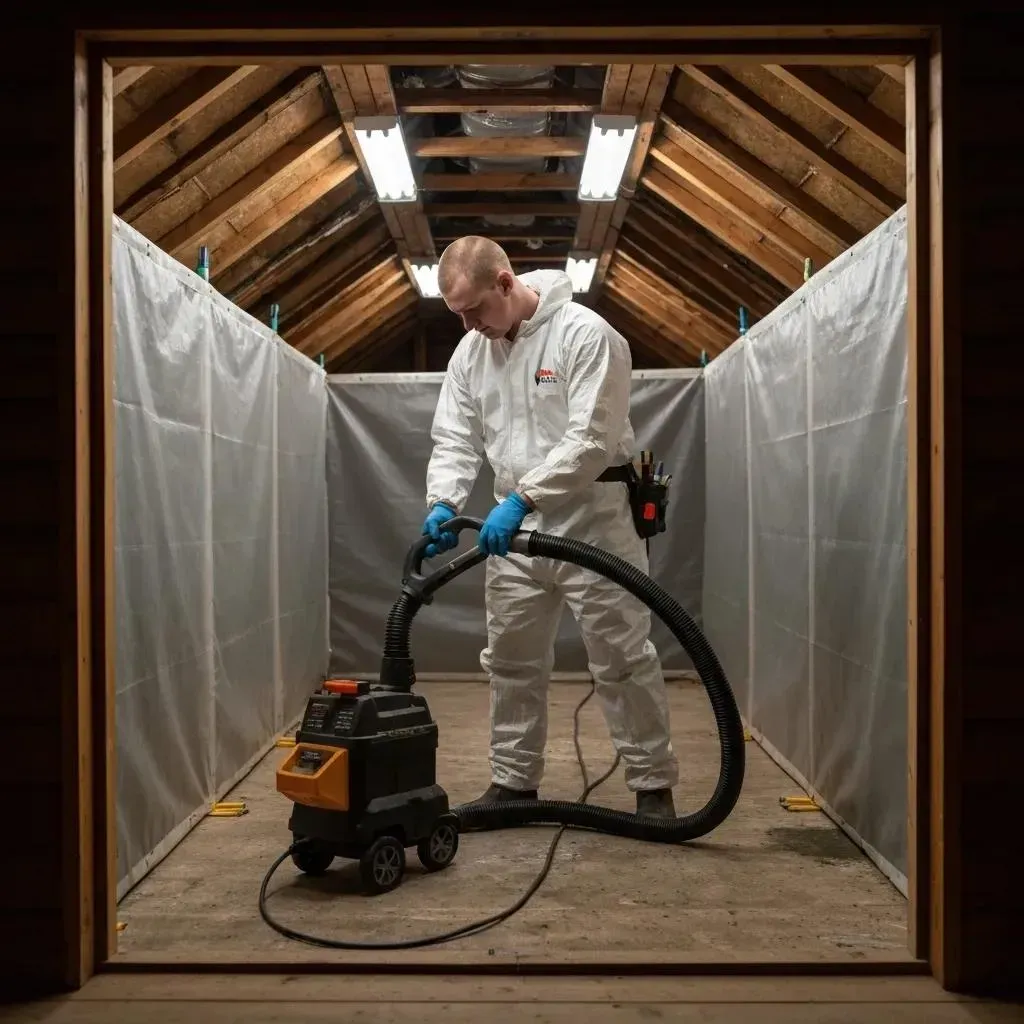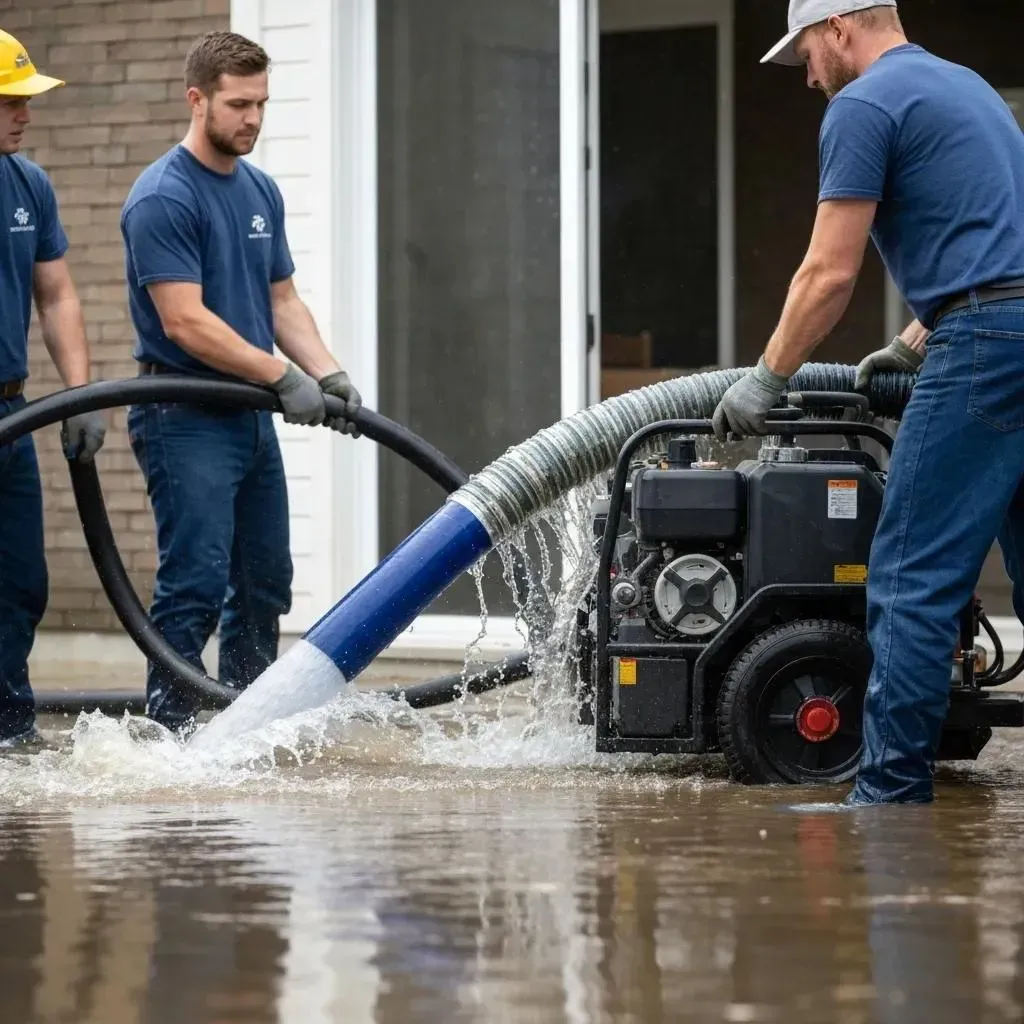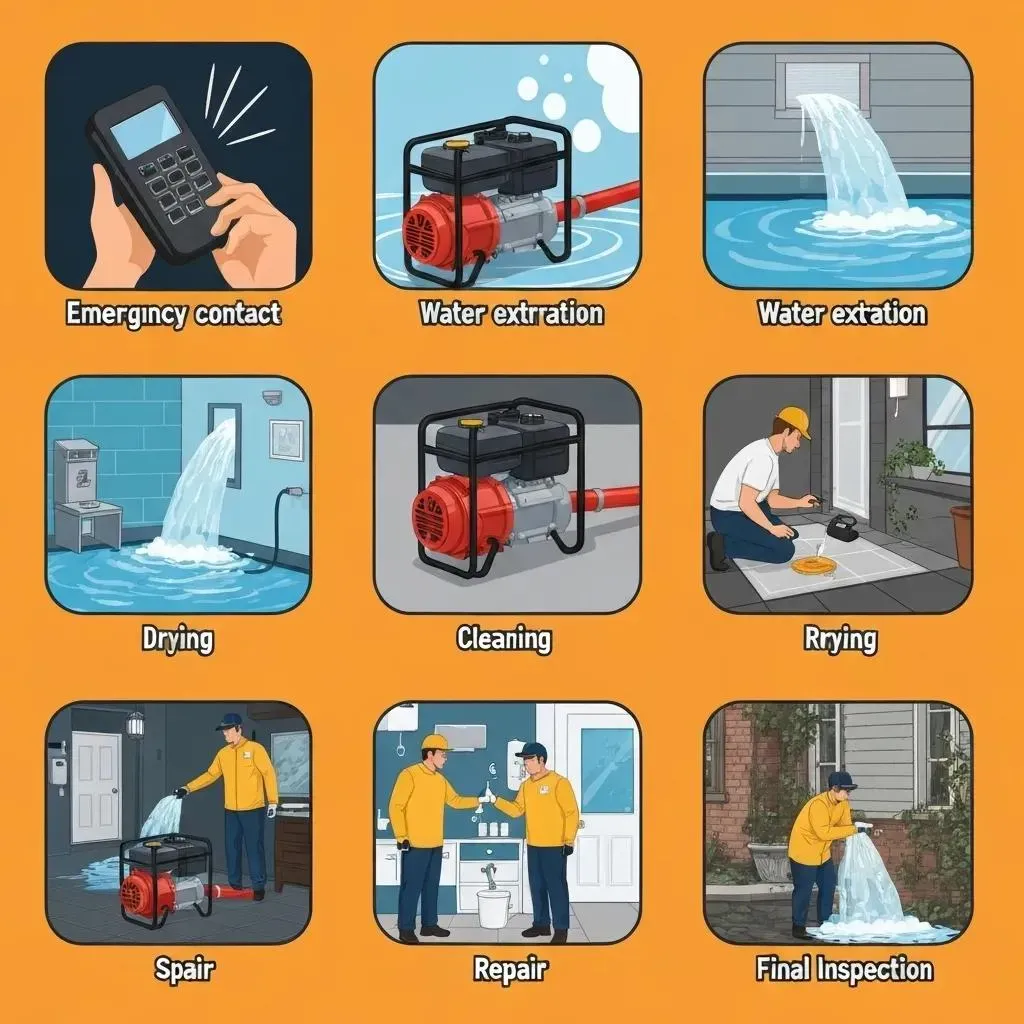Blog
Understanding the Hidden Dangers in Your Home
Mold and asbestos remediation is the professional process of safely removing health-threatening contaminants from your home. While these two hazards require different approaches, both demand careful attention to ensure your family's safety.
When it comes to protecting your Denver home, understanding the difference between these environmental hazards is crucial. Mold is a living fungus that thrives in damp conditions and can begin growing within 48 hours of water exposure. Asbestos, on the other hand, is a mineral fiber once prized for its fire resistance and commonly used in homes built before 1980.
Both threats can hide in plain sight. Mold often lurks behind walls, under flooring, or in attics where moisture accumulates. Asbestos may be present in insulation, floor tiles, ceiling materials, and even some types of drywall compound. Neither should be taken lightly – mold exposure can trigger allergic reactions and respiratory issues, while asbestos fibers can cause serious lung diseases including cancer.
The EPA estimates that approximately 30 million homes in the United States may contain asbestos-containing materials, while the CDC reports that indoor dampness and mold are associated with approximately 21% of current asthma cases nationwide. These statistics highlight why proper remediation is not just about property protection – it's about safeguarding your family's health.
I'm Mike Martinez, owner of Accountable Home Services, with over 15 years of experience providing professional mold and asbestos remediation for Denver homeowners facing these challenging environmental hazards. My team and I are committed to restoring not just your home's safety and integrity, but also your peace of mind through our certified, comprehensive approach to remediation.
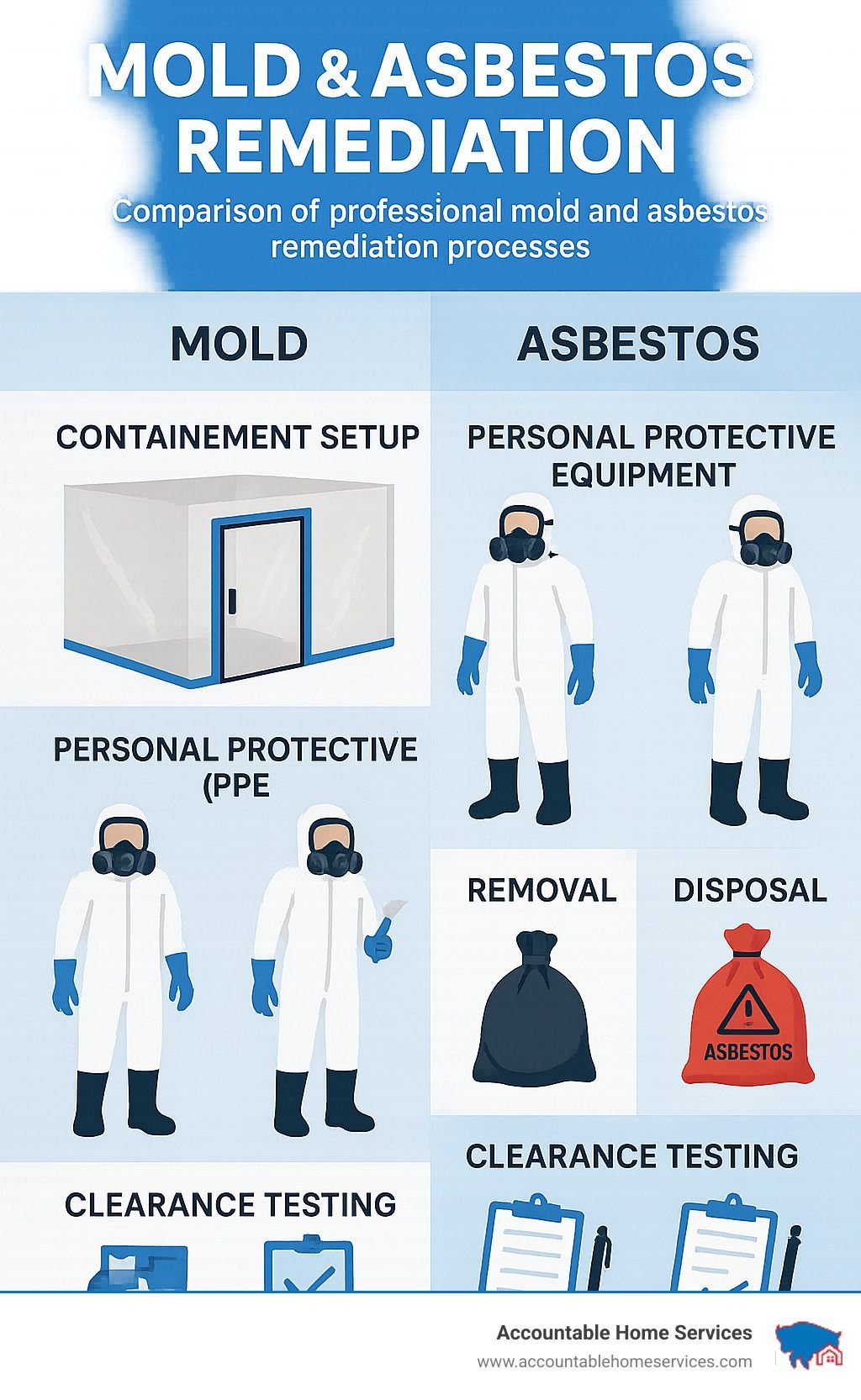
Mold & Asbestos 101: What They Are and Why They Matter
Ever wondered what's actually lurking in those dark corners of your Denver home? Let me shed some light on two common culprits that might be hiding in plain sight.
Mold and asbestos couldn't be more different in their basic nature, yet both can cause serious problems for your home and health. Understanding these differences is your first step toward effective mold and asbestos remediation.
Mold is actually alive—it's a fungus that spreads through tiny spores floating through your home's air. These microscopic travelers are everywhere, both inside and outside your home. When they land somewhere damp with a bit of organic material to munch on (think drywall, wood, or even dust), they set up shop and start growing. There are thousands of mold varieties, but in Denver homes, we commonly see Aspergillus, Penicillium, Cladosporium, and yes, that infamous "black mold" called Stachybotrys.
"The good news about mold is that once properly removed and the moisture source eliminated, it won't return to that specific area," explains our remediation specialist. "The bad news is that it's a living organism that can regrow if new moisture problems develop."
Asbestos, on the other hand, isn't alive at all. It's a natural mineral fiber that was once considered miraculous for construction because it doesn't burn, conducts little heat, and adds strength to materials. Unlike mold, asbestos is a set of six silicate minerals with thin, needle-like fibers. When disturbed during renovations or demolition, these fibers become airborne—and that's where the danger begins.
"The EPA determined in the 1970s that inhaling asbestos fibers causes serious lung illnesses including cancer," notes our certified asbestos inspector. "Unlike mold, once asbestos is properly removed, it will never return."
Why Mold Thrives Indoors
Denver's climate presents a unique mold scenario. While our air is generally dry, water intrusion can quickly create perfect mold conditions. Once moisture appears, mold can establish a foothold in as little as 24-48 hours—which is why fast action after any water event is crucial.
Mold needs three things to thrive: moisture, food, and comfortable temperatures. Your home unfortunately provides all three. Moisture sources can include leaky pipes, roof problems, flooding, excessive shower steam, cooking without proper ventilation, humidifiers, and even normal activities like breathing and indoor plants.
Mold particularly loves porous materials like drywall, ceiling tiles, wood, carpet, upholstered furniture, and paper products. These materials not only provide food but can trap moisture, creating the perfect mold nursery hidden from view.
"I recently inspected a home in Highlands Ranch where the homeowners couldn't figure out why they were constantly congested," shares our mold remediation expert. "We finded mold growing behind their bathroom vanity from a tiny, slow leak they never knew existed. Within three days of remediation, their symptoms disappeared."
Historical Use of Asbestos in Construction
If your Denver home was built before 1980, you're likely sharing space with asbestos-containing materials. This once "miracle" material peaked in popularity during the mid-20th century before health concerns led to regulations limiting its use.
In Denver's charming older neighborhoods like Washington Park, Capitol Hill, and Park Hill, asbestos was commonly used in numerous building materials. Even some homes built through the early 1990s might contain asbestos materials that were still in retailers' inventories after the import ban.
Where might asbestos be hiding in your home? Pipe insulation, popcorn ceilings, vinyl flooring, roof materials, wall insulation, HVAC ducts, and even some joint compounds all commonly contained asbestos. The material was prized specifically because it was so durable—which unfortunately means it's still present in millions of homes nationwide.
"We recently worked on a 1960s ranch home in Arvada where the homeowner was shocked to find asbestos in the original vinyl flooring under their carpet," shares our team leader. "They had no idea it was there until they started a renovation project. Fortunately, they called us for testing before removal."
The danger with asbestos comes when these materials are disturbed. Intact, they generally pose minimal risk. But renovation, demolition, or even drilling into asbestos-containing materials can release those harmful fibers into your home's air. According to scientific research on asbestos health effects, exposure can lead to serious conditions like lung cancer, mesothelioma, and asbestosis—often developing decades after exposure.
For Denver homeowners facing potential mold or asbestos issues, professional assessment is the safest first step. Our experienced team at Accountable Home Services provides comprehensive Mold Mitigation Denver services to safely address these environmental hazards and restore your home's healthy environment.
Red Flags & Early Detection
Identifying potential mold and asbestos problems early can save Denver homeowners thousands in remediation costs and protect family health. The challenge is that both hazards can remain hidden for years, with asbestos being particularly difficult to identify visually.
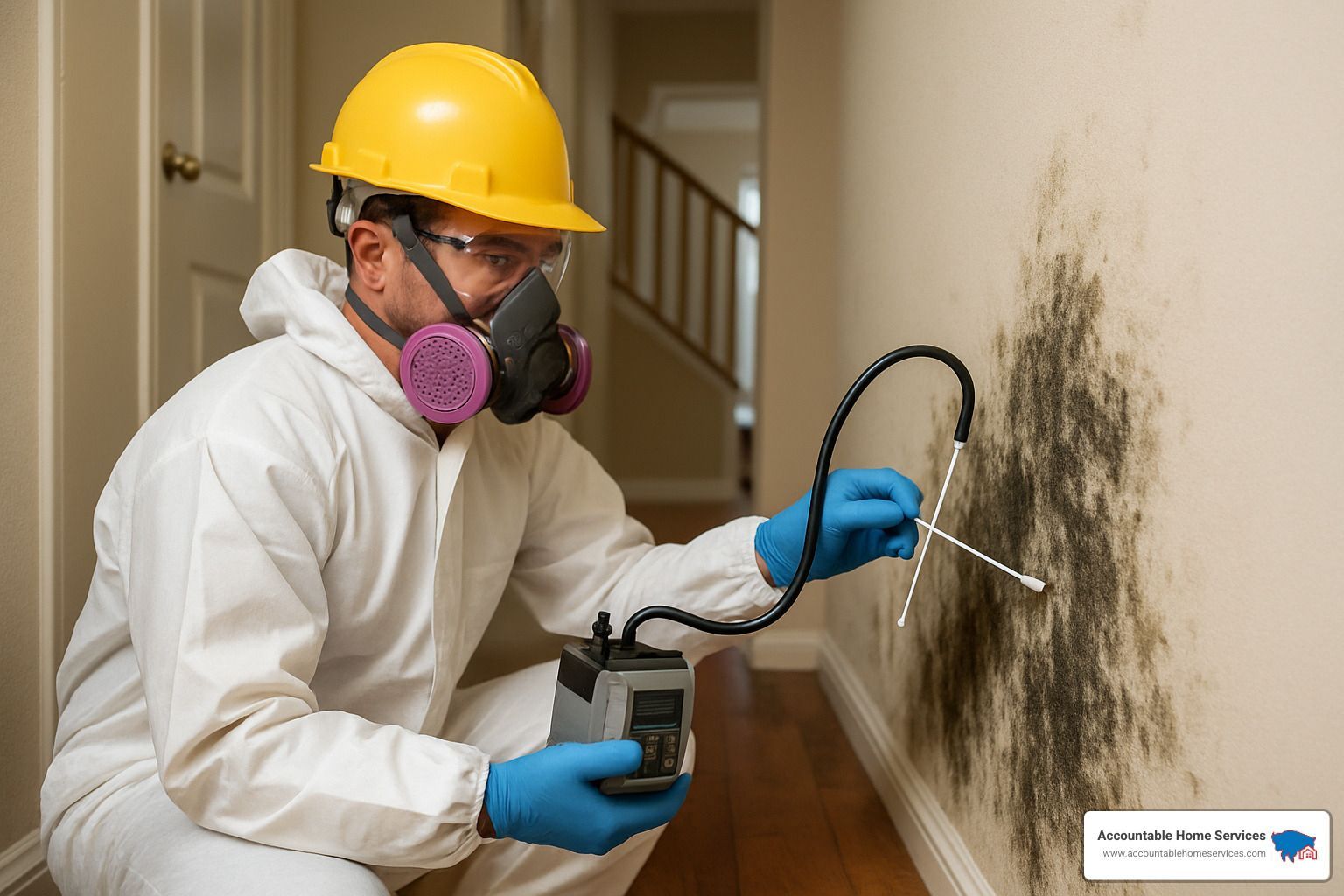
This is paragraph text. Click it or hit the Manage Text button to change the font, color, size, format, and more. To set up site-wide paragraph and title styles, go to Site Theme.

"The investment in proper remediation loses its value if you don't address the underlying causes," I often tell homeowners. Here in Colorado, our dry climate can be deceiving – while we don't struggle with humidity like coastal areas, we face our own unique moisture challenges that can lead to mold growth.
For effective mold prevention, controlling moisture is absolutely essential. I recommend maintaining indoor humidity between 30-50%, which often means using dehumidifiers in naturally damp areas like basements. During our notoriously dry winter months, you might actually need a whole-house humidifier – not just for comfort, but because excessive dryness can lead to plumbing leaks as materials contract.
Ventilation improvements make a massive difference in moisture-prone areas. Those bathroom exhaust fans aren't just for eliminating odors – they need to vent outdoors to remove moisture. Similarly, kitchen range hoods should exhaust to the exterior rather than simply recirculating air. When our beautiful Colorado weather permits, opening windows creates natural ventilation that helps maintain healthy air circulation.
Water intrusion demands immediate attention. I've seen small leaks turn into $10,000 remediation jobs simply because homeowners delayed repairs. Maintaining gutters and downspouts to direct water away from foundations is particularly important during our intense summer thunderstorms. The soil around your home should always grade away from the foundation – something many Denver homes struggle with as soil settles over time.
For homes where some asbestos materials remain, proper management is crucial. I recommend keeping a detailed asbestos inventory documenting known or suspected materials, which you should share with any contractors before renovations begin. Keep asbestos-containing materials in good condition by avoiding activities that might damage them – no drilling, sanding, or disturbing these areas. Many homeowners find peace of mind by planning for eventual professional removal, perhaps during planned renovations when the home can be temporarily vacated.
Picking the Right Remediation Partner
Choosing the right company for mold and asbestos remediation is critical for both safety and effectiveness. When I'm helping Denver homeowners select a remediation partner, I emphasize several key qualifications.
First, verify proper certifications and licensing. For mold work, look for IICRC certification in mold remediation. For asbestos, CDPHE certification is mandatory in Colorado. Any restoration work should be backed by a general contractor's license. Ask about insurance coverage – specifically liability insurance that covers remediation work, workers' compensation, and performance bonds for larger projects.
"One of the most important questions to ask any remediation company is who will be performing the clearance testing," I always advise clients. "If they're testing their own work, that's a potential conflict of interest. At Accountable Home Services, we always bring in independent third-party inspectors to verify our work meets or exceeds industry standards."
Look for detailed written protocols and contracts that clearly outline the scope of work, containment methods, and safety procedures. A quality remediation partner will provide warranty information and post-remediation support. Local experience matters tremendously – Denver's unique building styles and climate challenges require specific expertise. Don't hesitate to ask for references from past clients in your neighborhood.
Budget considerations vary widely based on the extent of contamination and specific materials involved. For mold remediation in Denver homes, small jobs under 10 square feet typically run $500-$1,500, while medium-sized single-room projects range from $1,500-$3,000. Large-scale remediation involving multiple rooms can cost $3,000-$10,000, and severe cases with structural involvement may exceed $10,000.
Asbestos abatement costs are typically calculated differently. Testing alone runs $300-$800, while removal costs vary by material: popcorn ceiling removal averages $3-$7 per square foot, pipe insulation ranges from $15-$30 per linear foot, and vinyl flooring removal costs $5-$15 per square foot. Full-house abatement can range from $15,000-$30,000 or more.
"We recently completed mold remediation for a family in Northglenn after a dishwasher leak," I recall. "Because they caught it relatively early, the cost was about $2,800. Had they waited even a few more weeks, the spread would have easily doubled or tripled that amount."
Insurance coverage varies significantly. Water damage leading to mold is often covered if the source was sudden and accidental (like a burst pipe), but long-term issues from humidity or slow leaks typically aren't covered. Asbestos removal is rarely covered unless related to a covered loss. Some insurance companies offer environmental hazard endorsements for additional protection. At Accountable Home Services, we work directly with insurance companies to maximize your coverage when applicable, handling all the documentation and negotiation to minimize your out-of-pocket expenses.
Long-Term Maintenance Checklist
To protect your Denver home from future mold and asbestos issues, I've developed a seasonal maintenance approach that works brilliantly in our unique climate.
In spring, focus on cleaning gutters and downspouts after our winter storms. Check for winter damage to your roof and siding, and inspect your basement for signs of spring thaw water intrusion. This is also the perfect time to test your sump pump operation and schedule HVAC maintenance before summer heat arrives.
During summer, our monsoon season requires monitoring indoor humidity levels closely. Check window and door seals during heavy rains, inspect attic ventilation, and watch for condensation on air conditioning ducts – a common problem in Denver's summer climate.
When fall arrives, clean gutters after leaf drop and inspect your roof before winter snow. Check weather sealing around doors and windows, ensure proper drainage away from your foundation, and test bathroom and kitchen exhaust fans to ensure they're working efficiently.
In winter, monitor humidity levels during heating season – our dry winter air can actually create moisture problems in surprising ways. Check for ice dams on roof edges that can force water under shingles, inspect pipes in unheated areas for freezing risk, and look for condensation on windows and walls that might indicate ventilation issues.
"Prevention is always more cost-effective than remediation," I emphasize to homeowners. "A $150 gutter cleaning could prevent a $5,000 mold remediation project." This proactive approach to home maintenance not only protects your investment but ensures your family enjoys healthy indoor air quality year-round.
For more guidance on protecting your home, check out our resources on Professional Asbestos Removal Company and Certified Mold Inspector Near Me to connect with qualified experts in the Denver area.
Frequently Asked Questions about Mold & Asbestos
Is it safe to stay in my house during remediation?
One of the most common questions Denver homeowners ask me is whether they need to pack their bags during remediation work. The answer isn't always straightforward, as it depends on your specific situation.
For mold remediation, your ability to stay home often comes down to the extent of the problem and your family's health profile. If we're dealing with a small, contained area of mold that can be properly sealed off from the rest of your home, you may be able to continue living there during the work. Our containment systems are designed to prevent cross-contamination, creating a safe barrier between your living space and the work zone.
"Last month, we helped a family in Highlands Ranch with a moderate mold issue in their basement," I recall. "Because we could completely isolate the area and the family had no history of respiratory issues, they were able to stay upstairs during the three-day remediation process without any problems."
However, if you or family members have asthma, allergies, or compromised immune systems, even our best containment efforts might not be enough to prevent sensitivity reactions. In these cases, we typically recommend temporary relocation.
For asbestos abatement, we generally take a more cautious approach.
"While our containment protocols for asbestos are extraordinarily thorough," explains our abatement supervisor, "the potential health consequences from even minimal asbestos exposure are serious enough that we typically recommend families stay elsewhere during active removal work, especially homes with children, elderly residents, or people with existing health concerns."
At Accountable Home Services, we'll have an honest conversation about your specific project and help you make the best decision for your family's safety. When temporary relocation is necessary, we can even help coordinate accommodations to make the process less stressful.
How long does a typical job take from test to clearance?
Timing is everything when dealing with home remediation projects. Here's what you can realistically expect when working with us:
For mold remediation projects in the Denver area:
- Initial testing and lab results typically take 1-2 days
- Smaller jobs involving a single room can be completed in 2-3 days
- Medium-sized projects generally require 3-5 days
- Larger remediation efforts involving multiple rooms or systems may take 5-10 days
For asbestos abatement, the timeline often extends a bit longer:
- Testing and lab analysis usually takes 1-3 days
- Colorado regulations require a 10-working-day notification period for larger projects
- Simple abatement of a single material might be completed in 2-3 days
- More involved projects typically require 3-7 days
- Comprehensive abatement of multiple materials throughout a home can take 1-3 weeks
I recently managed a project for a family in Arvada that beautifully illustrates how we approach complex remediation situations. Their 1960s ranch home needed both asbestos removal from popcorn ceilings and mold remediation in the basement following a plumbing leak.
"By carefully coordinating the sequence—tackling the asbestos first while setting up drying equipment in the basement—we completed everything in just 12 days," I explain. "The family only needed to relocate for the first week during the active asbestos work, which saved them considerable expense and disruption."
Our team prides itself on efficiency without cutting corners on safety or thoroughness.
Will insurance cover mold and asbestos remediation costs?
The question of insurance coverage often causes the most anxiety for homeowners facing remediation needs. The reality is that coverage varies significantly based on your specific policy and the circumstances of contamination.
For mold remediation, insurance typically follows these patterns:
- Sudden events like burst pipes or storm damage that lead to mold are often covered
- Gradual issues from ongoing humidity problems or maintenance neglect typically aren't
- Many policies have specific mold exclusions or coverage caps (often $5,000-$10,000)
One Golden homeowner I worked with recently finded her policy had a $10,000 mold remediation cap—which fortunately covered most of her costs following a washing machine overflow that wasn't finded for three days while she was on vacation.
For asbestos abatement, insurance coverage is generally more limited:
- Planned renovation-related asbestos removal is rarely covered
- Abatement necessitated by a covered event (like water or fire damage) may receive partial coverage
- Some premium insurance packages offer specific environmental hazard endorsements
"The insurance landscape for remediation can be tricky to steer," admits our insurance specialist. "That's why we've developed relationships with adjusters at every major carrier serving Colorado. We know how to document your claim properly, what language to use, and how to maximize your eligible coverage."
At Accountable Home Services, we'll work directly with your insurance company, providing detailed documentation and advocating for appropriate coverage. For many Denver homeowners, this assistance with the claims process proves just as valuable as our remediation expertise.
If you're concerned about potential coverage gaps, I recommend reviewing your homeowner's policy and considering specific environmental hazard endorsements—especially if you own an older home where these issues are more common.
Conclusion
When it comes to mold and asbestos remediation, the stakes couldn't be higher—your family's health and your home's integrity hang in the balance. Throughout Denver's neighborhoods, from century-old Victorians in Washington Park to newer builds in Stapleton, these invisible threats demand professional attention and specialized knowledge.
I've seen how overwhelming this process can feel at first. That initial moment when you find a potential hazard in your home often brings a mix of worry, confusion, and even a bit of panic. But I promise you—with the right partner by your side, this journey becomes not just manageable, but straightforward.
"The most rewarding part of what we do is seeing the relief wash over homeowners' faces when they receive those clearance test results," says our customer service manager. "A family in Broomfield told me last month they could literally breathe easier knowing their children weren't being exposed to hidden mold or asbestos anymore. That's why we do this work."
After helping thousands of Denver homeowners through successful remediation projects, we've identified five crucial takeaways:
Early detection truly saves money and health. Those subtle warning signs—musty odors, mysterious water stains, or unexplained respiratory symptoms—deserve your attention. The difference between addressing a small problem now versus a major contamination later can mean thousands of dollars and, more importantly, protected health.
Professional testing provides certainty that DIY kits simply can't match. The accuracy of professional sampling combined with laboratory analysis gives you definitive answers, not just guesswork.
Proper remediation follows established protocols that aren't optional or flexible. Containment, negative air pressure, and appropriate removal techniques aren't just industry jargon—they're your family's safety net during the remediation process.
Prevention remains your best investment. Addressing moisture issues promptly, maintaining your home systems, and exercising caution during renovations of older properties can save you from future headaches.
Local expertise matters tremendously. Colorado's unique climate conditions—from our dry air to intense sun exposure to dramatic temperature swings—require specialized knowledge for truly effective remediation.
As a family-owned business serving the Denver metro area, we understand that your home is more than just a building—it's where your life happens. That's why we approach every mold and asbestos remediation project with the same care and attention we'd give our own homes.
If you're concerned about potential mold or asbestos issues, please don't wait until small problems evolve into major health hazards. Contact Accountable Home Services today for professional testing and a customized remediation plan custom to your specific situation. Your family deserves to breathe easy in a safe, healthy home.
After all, peace of mind isn't just about removing hazardous materials—it's about restoring your confidence in the place you call home.

